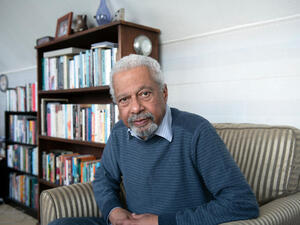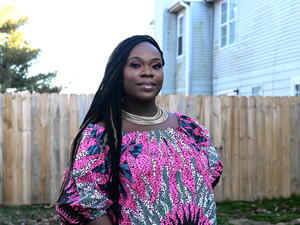UNHCR chief Guterres urges donors to support inter-agency appeal for Iraqi refugees
UNHCR chief Guterres urges donors to support inter-agency appeal for Iraqi refugees

This Iraqi family spend much of their time in their current home in Damascus, Syria. An appeal to donors seeks more funding to help the needy.
GENEVA, January 26 (UNHCR) - UN High Commissioner for Refugees António Guterres on Wednesday launched an inter-agency appeal for US$280 million to support Iraqi refugees living in a dozen states.
The Regional Response Plan for Iraqi Refugees, announced in Geneva's Palais des Nations, brings together the plans of 40 international organizations and NGOs who are supporting Iraqi refugees in Egypt, Iran, Jordan, Lebanon, Syria, Turkey, Iran and the six Gulf states.
"I appeal to donor governments to recognize the critical needs of Iraqi refugees," Guterres said in a statement. "Particularly those who are becoming more vulnerable by the day," added Guterres, who heads the UN refugee agency.
This new appeal highlights the needs of more than 190,000 Iraqi refugees registered with UNHCR in the region; the majority live in Syria and Jordan. It also includes a number of programmes that support the education and health systems of these host countries.
Announcing the appeal two days after returning from a three-day trip to Iraq, the High Commissioner noted that "the new government represents an enormous opportunity for Iraq, but also for our work. I hope we are marking the beginning of the end of the displacement chapter in Iraq."
The majority of Iraqi refugees in Syria and Jordan fled from their embattled country more than three years ago. Many have found it hard to find work, making them reliant on dwindling savings and the support offered by international aid organizations and local NGOs.
One of the worst consequences of this poverty is the number of Iraqi refugee children who have left school to find casual work to help feed their families. Stressing the importance of supporting refugees, Guterres said that "when an Iraqi child goes to school rather than work, you are investing in the future of Iraq."
The statement said UNHCR's registration database of Iraqi refugees showed that 34 per cent were considered to be vulnerable, including thousands of people with critical health problems and a significant number of female-headed households.
While almost 90,000 refugees have returned to Iraq in the past three years, the rate of return has slowed recently and new asylum-seekers continue to register with UNHCR in neighbouring countries.
Highlighting the continued friendship and solidarity offered by host governments to Iraqi refugees, Guterres warned that "the burden on host communities and host governments in the region is enormous. It is essential that the international community support humanitarian efforts to help the most vulnerable refugees."
Guterres also thanked the countries that have offered resettlement to the more than 60,000 Iraqi refugees who have departed to new homes since 2007. UNHCR estimates that a further 60,000 Iraqi refugees are in need of resettlement.








